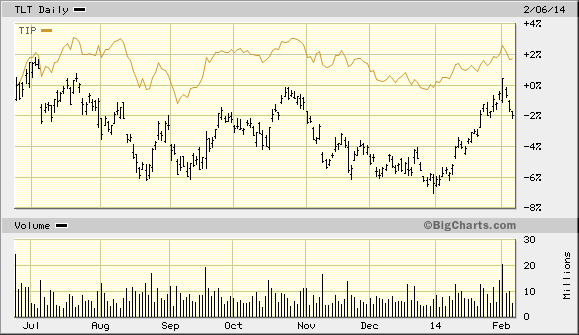Jobs Data Great For ETFs Grisly For The Economy
Post on: 25 Июнь, 2015 No Comment

Summary
- Many television analysts trumpeted the fact that the total number of jobs today are on par with the total number of jobs at the start of the Great Recession.
- The creation of hundreds of thousands of net new jobs is certainly better than massive layoffs.
- The labor market is uncommonly weak.
Holy Moly! exclaim the financial media. They marvel at a headline unemployment number of 5.9%. They celebrate year-to-date job growth that is averaging about 220,000 positions per month. This economy is much better than people think!
However, the economic optimists are wrong. The labor market is uncommonly weak.
So why did stocks rocket higher on the job news? In essence, Mr. Market knows that Janet Yellen’s Federal Reserve will not be raising overnight lending rates anytime soon. The Fed won’t be raising rates in the 1st quarter of 2015; you won’t see it in the 2nd quarter either. Not when average hourly earnings drop. And not when the labor force participation rate — the actual employment rate for working aged individuals — resumes it descent.
Many television analysts trumpeted the fact that the total number of jobs today are on par with the total number of jobs at the start of the Great Recession (12/07). We’re back! they cheer. The comparison misses the point that there are 3.2 million more Americans now than there were in December of 2007 who are unemployed or working less than they would like; they’re not able to find full-time employment.
It gets worse. Tack on another 7 million folks who have dropped out of the labor pool altogether. How many of those retirees genuinely chose to pursue a life of leisure? Or are the majority so discouraged that they simply stopped looking? How many found a path to collecting government-assisted disability? How many of the newly retired joined the ranks of roughly 50 million food-stamp recipients?
Stocks moved dramatically higher on Friday, October 3, because the markets understand Janet Yellen’s job slack message. The chairwoman of the Fed is not going to move quickly on rate increases without evidence of corresponding increases in wage inflation and evidence that the size of the labor force has stabilized. Thus far, adjusted for purchasing power, wages are about the same as they were seven years ago. Meanwhile, the percentage of the population earning any dollars from work has diminished sharply.
The creation of hundreds of thousands of net new jobs is certainly better than massive layoffs. What’s more, Mr. Market does not fear the Fed amid a shrinking labor pool and limited paycheck raises. Corporations are free to keep borrow cheaply, buy back shares of their own stock or acquire other companies. In contrast, do not hold your breath on consumers or real estate. Low rates may have helped consumers get autos because auto lenders will take on any type of borrower. Yet overall consumption will remain relatively stifled by flat household income. Even those that might have some dollars to buy a home are not able to persuade home lenders to lower credit standards. It should not come as a surprise to see sales volume in residential housing continue to erode.
You do not believe that I have an accurate read on the present set of circumstances? Then take a look at the long end of the yield curve via PIMCO 20+Year Zero Coupon (NYSEARCA:ZROZ ). On a day when the Dow jumped 200 points, supposedly due to phenomenal job growth, ZROZ rose 1.04%. The exchange-traded tracker came within spitting distance of yet another 52-week high. More often than not, when stocks soar on good news, bonds falter. The yield curve is flatter than it has been in more than five years, and you can partially explain long-bond strength through labor market weakness.
Click here for Gary’s latest podcast.
Disclosure: Gary Gordon, MS, CFP is the president of Pacific Park Financial, Inc. a Registered Investment Adviser with the SEC. Gary Gordon, Pacific Park Financial, Inc, and/or its clients may hold positions in the ETFs, mutual funds, and/or any investment asset mentioned above. The commentary does not constitute individualized investment advice. The opinions offered herein are not personalized recommendations to buy, sell or hold securities. At times, issuers of exchange-traded products compensate Pacific Park Financial, Inc. or its subsidiaries for advertising at the ETF Expert web site. ETF Expert content is created independently of any advertising relationships.














